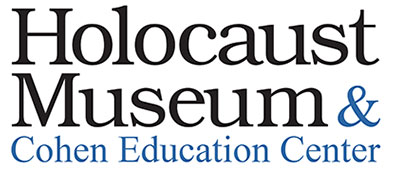Irving Berzon was born in 1923 in New York City to Jewish parents who raised him religiously. After a year of college, Irving worked as a junior engineer at the Brooklyn Navy Yard. In March 1943, nineteen year-old Irving was drafted into the United States Army. Irving’s previous training earned him a variety of skilled assignments and he was placed in a technical intelligence unit.
In March 1944 his unit entered Frankfurt. During the ten weeks they were there, Irving and his team were not aware of concentration camps in the area. In early April they entered Ohrdruf, Germany. With his three team members, Irving entered the barbed wire fences of the camp and saw hundreds of corpses. The bodies appeared to be a few days old—shot upon the German guards’ knowledge of the American approach. Later, Irving learned that these were non-Jews and forced laborers from Poland and Czechoslovakia. An American Armored Division nearby had the townspeople of Ohrdruf (including the Mayor) dig graves. The townspeople claimed ignorance of the camp.
In May, Irving’s team liberated a forced labor camp in Nienburg, Germany of 1,200 prisoners (non-Jews of various nationalities). Once again, the Germans had abandoned the camp. The following day, Irving’s team sent the liberated people to their home countries.
Months later, Irving contracted hepatitis. Irving was hospitalized and returned to the United States upon discharge.
Irving eventually completed his degree in mechanical engineering. Irving’s experiences during the war solidified a devotion to Israel, Judaism, and his country.
